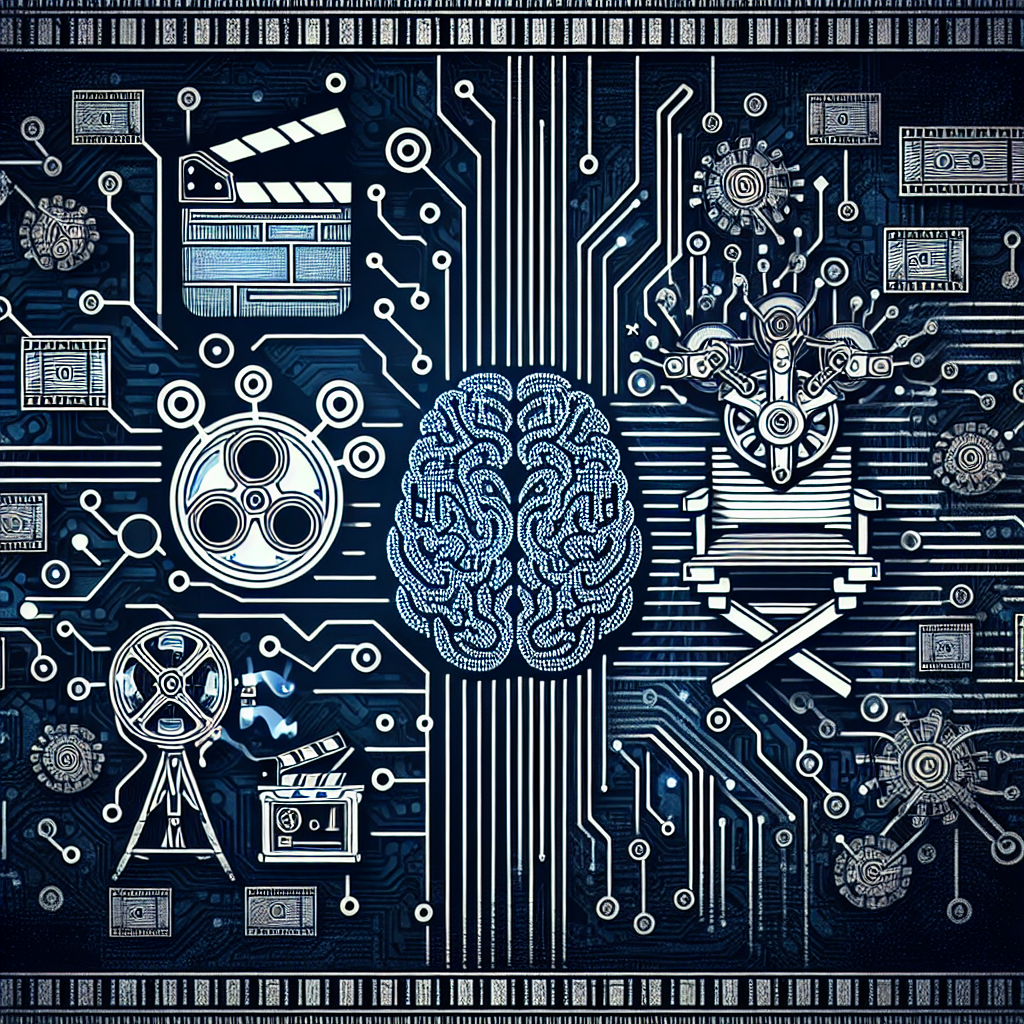In recent years, artificial intelligence (AI) has made significant advancements in various industries, including the film industry. From AI-generated screenplays to virtual actors, AI has started to make its mark on the world of cinema. This article will explore the impact of AI on cinema and how it is revolutionizing the way films are made.
AI-Generated Screenplays
One of the most significant ways AI is impacting cinema is through the generation of screenplays. Traditionally, screenwriting is a time-consuming and labor-intensive process that requires a human touch to create compelling stories. However, AI has now made it possible to generate screenplays using algorithms and machine learning.
AI-generated screenplays can help filmmakers come up with new and innovative ideas for their films. By analyzing vast amounts of data from existing films and scripts, AI can generate new storylines, dialogue, and characters that can be used as a starting point for a screenplay. This can help filmmakers save time and resources by providing them with a solid foundation to build upon.
One example of AI-generated screenplays is the short film “Sunspring,” which was written by an AI program called Benjamin. The film received mixed reviews from critics, but it showcased the potential of AI in the creative process of filmmaking.
Virtual Actors
Another way AI is impacting cinema is through the use of virtual actors. Traditionally, filmmakers have relied on human actors to bring characters to life on screen. However, with the advancements in AI technology, virtual actors are now becoming a reality.
Virtual actors are created using computer-generated imagery (CGI) and AI algorithms that can mimic human movements, expressions, and emotions. This technology allows filmmakers to create realistic and lifelike characters that can be customized to fit the needs of a particular film.
One example of virtual actors in cinema is the character Maz Kanata in the Star Wars franchise. Maz Kanata was created using CGI and motion-capture technology to bring the character to life on screen. The use of virtual actors can help filmmakers create characters that would be impossible to achieve with human actors alone.
AI-Enhanced Visual Effects
In addition to AI-generated screenplays and virtual actors, AI is also being used to enhance visual effects in films. Traditionally, visual effects have been created manually by visual effects artists using specialized software. However, AI can now assist in the creation of visual effects by automating certain tasks and speeding up the process.
AI algorithms can analyze footage and apply effects such as color correction, motion tracking, and compositing more efficiently than human artists. This can help filmmakers save time and resources while achieving high-quality visual effects for their films.
One example of AI-enhanced visual effects is the use of deep learning algorithms to create realistic facial animations in films. These algorithms can analyze facial expressions and movements to create lifelike animations that can be used for characters in animated films or to enhance the performances of human actors.
FAQs
1. Can AI replace human creativity in filmmaking?
While AI can assist in generating screenplays and creating visual effects, it is unlikely to replace human creativity entirely. Filmmaking is a collaborative process that requires the input of directors, writers, actors, and other creative professionals to bring a film to life. AI can help streamline certain aspects of filmmaking, but human creativity will always be essential in the creative process.
2. Are virtual actors the future of cinema?
Virtual actors have the potential to revolutionize the way films are made, but they are unlikely to replace human actors entirely. Virtual actors can be used to create characters that are impossible to achieve with human actors alone, but human actors bring a level of emotion and authenticity that is difficult to replicate with AI technology.
3. How is AI impacting the film industry?
AI is revolutionizing the film industry by providing filmmakers with new tools and technologies to enhance the creative process. From AI-generated screenplays to virtual actors and AI-enhanced visual effects, AI is changing the way films are made and pushing the boundaries of what is possible in cinema.
In conclusion, AI is having a significant impact on the film industry, from AI-generated screenplays to virtual actors and AI-enhanced visual effects. While AI technology has the potential to revolutionize the way films are made, human creativity will always be essential in the creative process of filmmaking. As AI continues to advance, we can expect to see more innovative uses of AI in cinema and exciting developments in the future of filmmaking.

